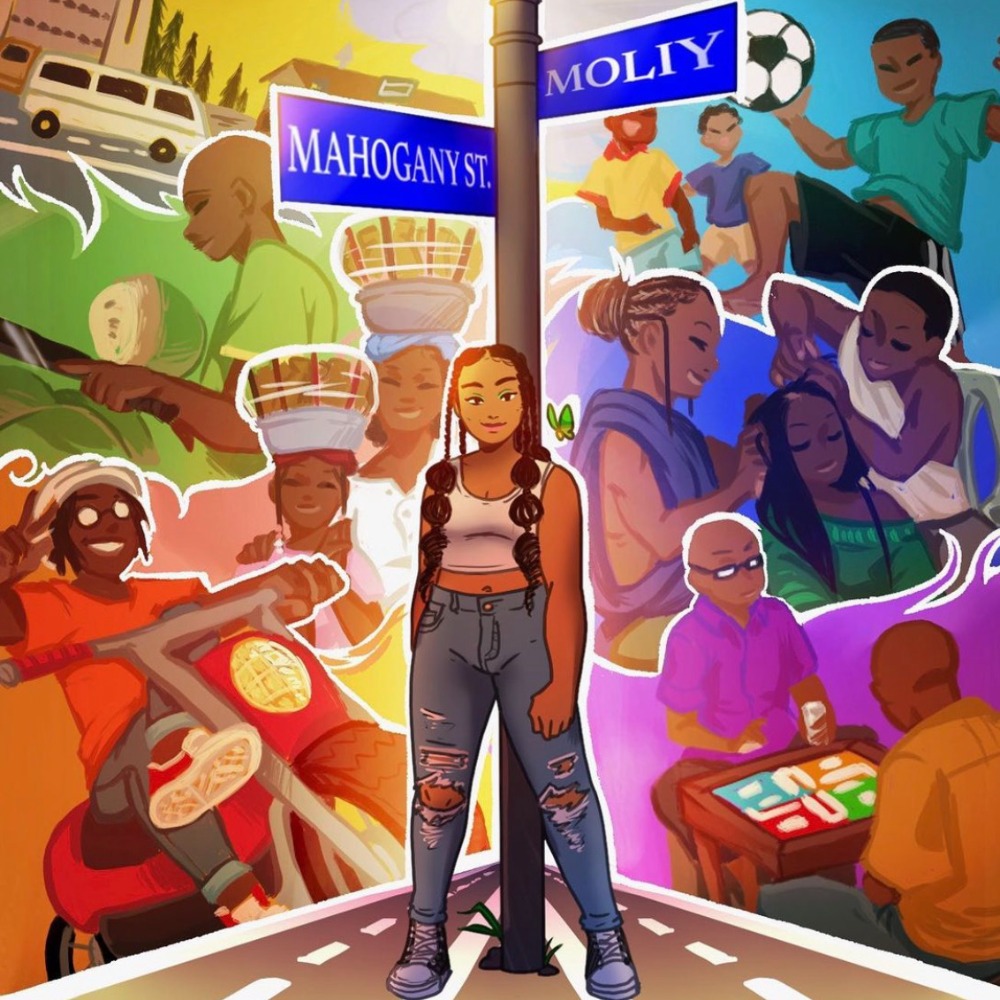
Best New Music: Moliy’s “9 To 5” Celebrates The Joy of Unconventionality
a standout off her latest EP

a standout off her latest EP
Moliy’s profile has been on the rise ever since last year when she bodied her role on Amaarae’s “Sad Girlz Love Money”. Almost two years ago, her crystalline vocals showed great promise on debut EP ‘Wondergirl’, stoking excitement around her dreamy takes on Afropop. The Fresh Meat alum has continued to sketch her narrative, one song and project at a time, not quite fazed by the pace of today’s music scene.
Her latest drop came last weekend, a 3-song project she named ‘Mahogany Street’. Coming weeks after Moliy coloured BOJ’s “In A Loop” alongside her sister Mellissa, the songs were met with expectant ears. After lining her records with flourishes from diasporic genres, Moliy plays closer to home on her new tape. The title takes from a real street in Accra, Ghana while the sonics, as she said in an exclusive with The NATIVE, was inspired by “my neighbourhood, that’s what I’m saying, like I really want people to know I’m from Ghana and I’m out here making the kind of music that I do, I want it to be known.”
View this post on Instagram
With just three songs and Moliy’s refreshing cadences, her latest EP ‘Mahogany St,’ is an immersive experience that underlines the artist’s movement towards the centre of a burgeoning global movement. To that end, no other song captures the awareness of her confidence as the catchy opener “9 to 5”.
Many artists have looked to the future with eyes of optimism, projecting favourable fortunes on themselves. It’s however believed that sometimes luck comes into play in the search for success, and turning to the divine becomes a viable leeway. The young African isn’t so concerned with things they can’t control, believing that destiny can be arrived at through hard work, and truly a number of success stories prove the fact. “9 to 5” is that song, and Moliy is confident she doesn’t want to journey through the conventional path.
Just under three minutes, the song stakes its claim, carried on Moliy’s inspired vocals and a gritty Dancehall bounce. Although steeped in cinematic back effects, the singer’s voice stays in tChe centre of things. “See the pain in my eyes, what I did to survive/ Real ones go fit realise”, she sings in the first verse, and before coasting to the assured hook, maintains character as one who’s tasted the sour edges of life, singing “But everyone has let me down, I got trust issues”.
For its own sake though, the record doesn’t fully embrace the sentiments that come with such betrayals. On the second verse, Moliy throws the light back on the community, opening the car seat for anyone who’s down for the ride. Her increasing ease with local cultural references also shines, especially in lines such as “Try get in my way and get this gobe” and “karma on the roll, gonna catch up on you one day.”
Moliy might not be known to the biggest section of Afropop fans, but she’s showing the grit necessary for a shot at the top. With a song like “9 to 5”, she’s speaking to her youthful fanbase but also to the wider industry, letting everyone know she’s in her zone and hungry for all that comes with making it.
Featured image credits/Instagram

